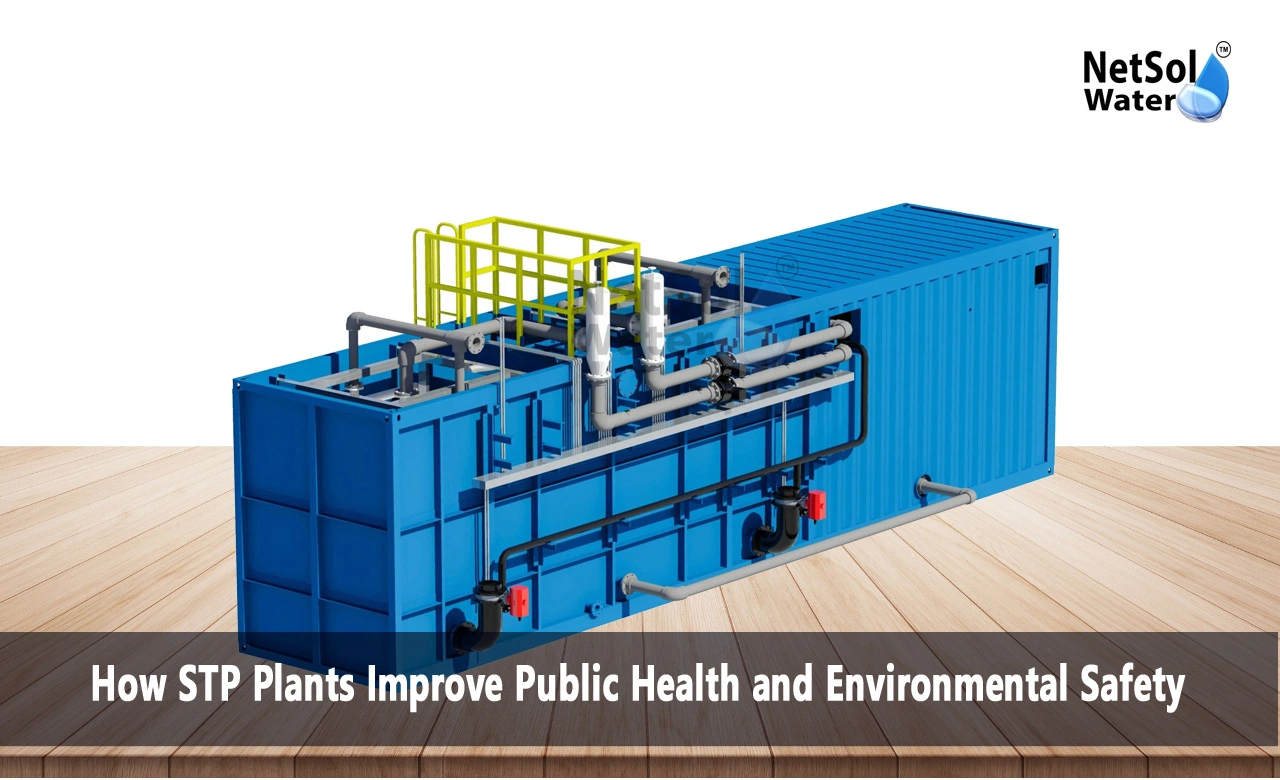How STP Plants Improve Public Health and Environmental Safety?
Sewage treatment plants commonly known as STP are significant in discharging wastewater from households, commerce and other institutions. This wastewater is carrying pathogenic bacteria, virus, and pollutants and must be treated before being discharge to environment. We will measures for considering how STP’s benefit the public health and the environment will be highlighted.
Protecting Public Health
Standard STPs are designed to safeguard public health by having effluent which has undergone certain treatments to contain no bad elements. Here's how they do it:
Eliminating Harmful Bacteria and Viruses
The water that comes out from the toilets, sinks and shower heads contains the disease-causing contaminants such as bacteria and viruses. If this water is not well treated it results to diseases such as cholera, dysentery and hepatitis among others.
These dangerous microorganisms are either broken down or inactivated by biological means in STPs to render the water fit for contact or utilization.
Preventing Water-borne Diseases
Untreated sewage has a chance to spread, contaminate drinking water, and lead to an outbreak of diseases carried by the water. Thus, the STPs have a role to play in maintaining community health and decreasing the pressure on medical facilities by effectively treating sewage and preventing the spread of certain diseases.
Improving Sanitation
In communities it is very crucial that the STPs are functioning properly in order not to cause bad sanitation related incidences. They help to prevent contamination of the environment by wastes and minimize germ transmission in the environment.
Safeguarding Environmental Safety
In addition to protecting public health, STPs also play a critical role in preserving the environment:
Reducing Water Pollution
Contaminated water through sewage without treatment poses a significant threat to the aquatic life and the environment. STPs treat wastewater by removing pollutions such as organic matter, chemicals, and heavy metals before being discharged into a river, lake, or ocean. This assures the quality of water bodies and the plants and animals that rely on the water for their survival.
Conserving Natural Resources
STPs also help in the conservation of fresh water which is scarce natural resource through wastewater treatment and recycle. The treated water can be used in many application like watering plants, in industrial applications, and in some cases for drinking. This decreases the need for fresh water and thus prevents water sources from being depleted.
Preventing Eutrophication
Eutrophication is a process that water bodies receive too much nutrient such as nitrogen and phosphorus which causes growth of algae. It can also alter the level of dissolved oxygen in water thereby eliminating most of the fish and other aquatic animals.
STPs extract all these extra nutrients from sewerage, thus lowering probabilities of eutrophication and harm to water bodies.
Reducing Greenhouse Gas Emissions
Greenhouse gas emissions are other aspects which have been reduced and this has been made possible by the formation of STPs. Nearly all the newly built STPs collect and utilise methane which is produced in the process of treatment as a fuel. Besides, it will reduce the plant’s contribution to the general emissions of green house gases which are essential in combating climate change.
Conclusion
Sewage Treatment Plants are required for washing the sewage in other to improve the health standards of the public as well as avoiding some unfavorable physical effects. Other uses of STPs include elimination of pathogens and toxins in order to prevent diseases from spreading, protection of water sources for human use, protection of ecosystems.They also help in the conservation of resources and aid in the prevention of green house emission. In short, STPs are essential facilities that which ensures that the communities are healthy and that the environment is sustainable.
Do you need an advice or assistance on selecting the best water and waste water treatment unit? We have solutions for all your problems!
Let us know your problem, our experts will make sure that it goes away.
For an assistance or related query,
Call on +91-965-060-8473 Or write us at enquiry@netsolwater.com



